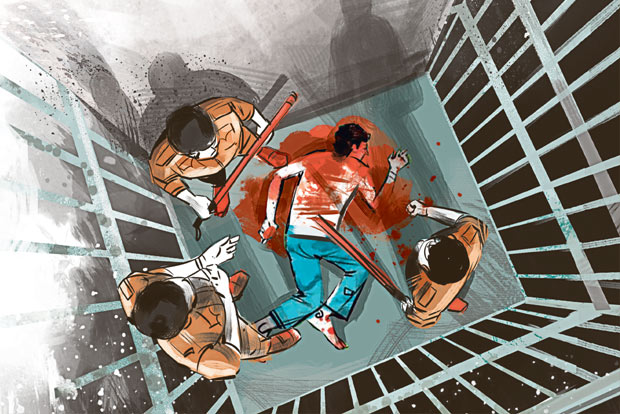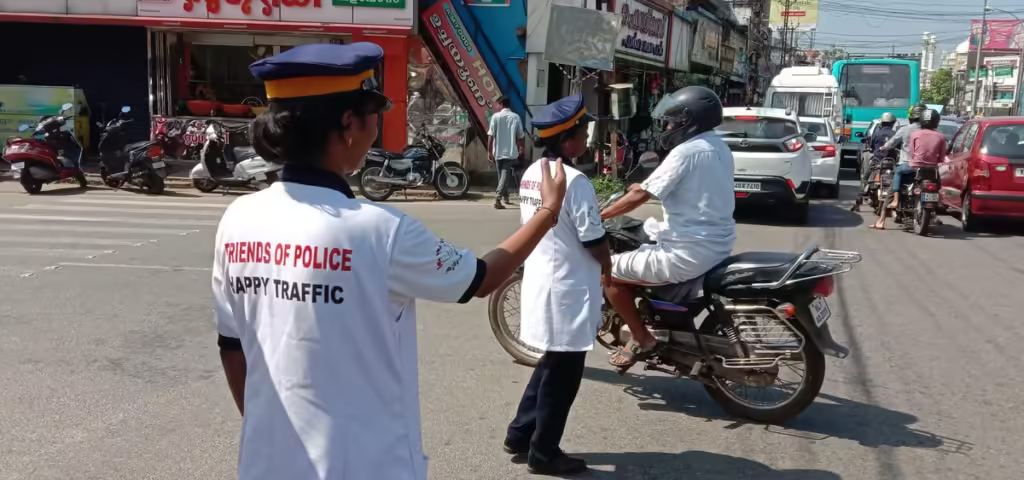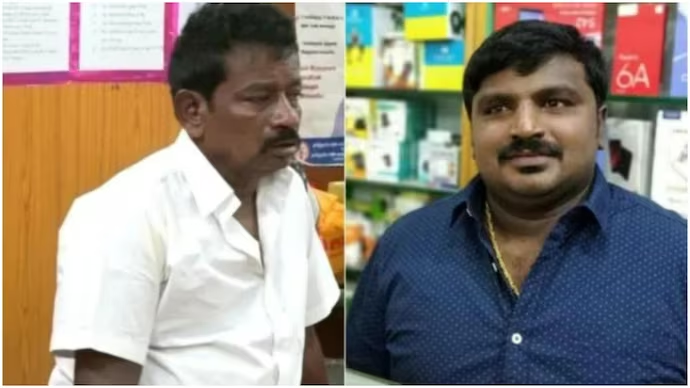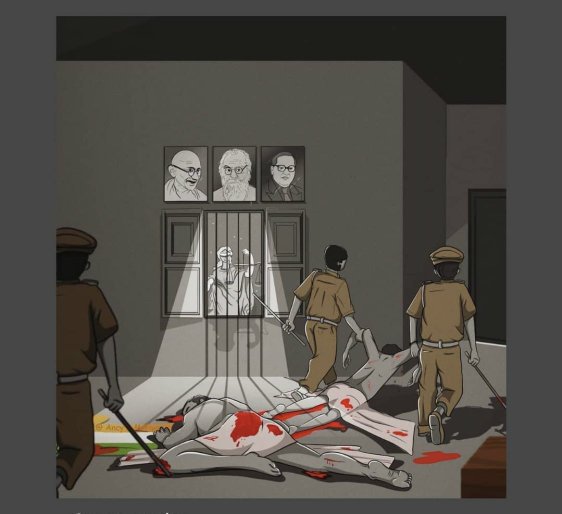Ramanathapuram was a thriving, teeming, vibrant town in 1993, with everything to look forward to under the efficient and able SP Philip V. Prateep. The Superintendent of Police was young, vibrant, eager and full of promise. His entire service was marked by trying situations, where he was often compelled to forego personal and family celebrations due to work pressures. He noticed that his subordinates, too, were bearing the brunt of the pressure exerted on the police personnel.
And so, the FOP (Friends of Police) programme was conceptualised. This citizen-driven, law enforcement-supported volunteer programme was designed to connect with the public who wanted to join the police department or help local law enforcement. Apart from the above desires, the FOP members also volunteered to regulate traffic, patrol areas, and look for crime-related information. The SP felt that this would not only reduce the pressure on the police but also help the police-community gap that was widening year after year, where the police were seen as a part of the community and with the people.
The Ramanathapuram experiment was a success and attracted the attention of the Tamil Nadu government, which in 1994 opted to implement the idea in its entire state; as with most well-meaning ideas, the FOP programme too hit a rough patch. To begin with, the volunteers were assigned relatively safer duties like serving refreshments in the station, aiding traffic regulation and accompanying police on patrolling.
Each of the small ways the volunteers helped reduce the pressure on the police was invaluable. But as time went by, the proportion changed. The volunteers, immersed in police ethos and work, started identifying themselves as part of the police and demanded everything that the police got and more. There were reports of misuse of authority and power by the FOP members, especially in the rural and semi-urban segments.
The proportion had tipped, and the events in 2020 which shook Tamil Nadu and, in fact, the entire world: the murder of Jeyaraj and Bennicks.
The Event That Shook The World
On March 24, 2020, the COVID-19 pandemic brought India to a lockdown. Life had come to a standstill as all businesses, institutions, and shops had shut, and the streets were deserted with barely a passerby. Essential services like medical stores could function for a few hours daily in an otherwise distressing situation. Against this backdrop, the June 19, 2020, events occurred in the sleepy village of Sathankulam in the Thoothukudi district of the state.
Jeyaraj was a petty businessman, and his son Bennicks was a small-time merchant. Both were well respected in the society. They were both arrested by the police for supposedly keeping their shops open for more than the permitted time during the lockdown imposed due to the COVID-19 pandemic, as well as for misconduct with the police personnel and for causing a public nuisance. After their speedy arrest, they were both produced before the magistrates, who remanded them to jail custody at the Kovilpatti Sub-Jail. After two days, both Jeyaraj and Bennicks died.
Officially, they died of pre-existing medical conditions which were aggravated by their own misbehaviour, so it was said, but the people were not convinced. There were rumours, and there were eyewitness accounts of something far darker.
Before the Killings
Jeyaraj and Bennicks were not known to be violent men. Jeyaraj, 59, owned a timber shop. Bennicks, his 31-year-old son, sold mobile phones.
A similar scuffle had taken place before when drunken revellers were being told off for drinking liquor in public, such as some members of FOP, outside his shop. One FOP member added salt to the injury by shooting the scene on video. It was also reported that SI Balakrishnan went to Benniks’ shop and demanded free mobile phones or a date for the same, which was refused or postponed, creating an atmosphere of insult in Balakrishnan’s mind. These are all build-ups to the acts of abhorrence that played out later.
Arrest and Torture
A police party headed by SI Balakrishnan came in front of Jeyaraj’s wood shop late on June 19, 2020, and took him away into their custody. That’s when Bennicks learnt of his father’s detention and raced to the police station with friends and an advocate, hoping to get his father out. Little did he know that he was about to enter a living nightmare.
Jeyaraj and Bennicks were assaulted and brutally tortured within the four walls of the Sathankulam police station, undressed, lathi charges galore on their bodies, and degraded in a manner one would hardly imagine. Eyewitnesses claimed that some of the officers went into a fury while torturing the two men with unspeakable agony. The beating was so severe that it is said blood flowed on the station walls, and either man used to change his dhotis due to excessive bleeding.
The Fatal Aftermath
Though serious-intensity injuries were caused, the police party managed to get one medical certificate indicating that Jeyaraj and Bennicks were fit to be taken into custody from the government hospital. The tortured souls were judicially remanded, where the magistrate was elsewhere without due verification. Then, they were dumped into Kovilpatti Sub-Jail, where their agony continued throughout the journey.
He was admitted to the government hospital in Kovilpatti on June 22 with complaints of difficulty in breathing, but he breathed his last there. His father, Jeyaraj, succumbed the next day morning to the cumulative effects of the torture.
Public Backlash and Litigation
The murder of Jeyaraj and Bennicks led to a backlash and reaction from all over the state of Tamil Nadu and even beyond that. This was when hashtags like #JusticeForJeyarajAndBennicks trended across all social media, and the general public anger was reflected in the placard-holding protests asking for justice. The Tamil Nadu government first tried to white-wash the incident by stating and explaining that the two died of ordinary sickness, after which the family was announced compensation. However, the mounting pressure saw a severe response.
The Madurai Bench of the Madras High Court took a suo motu case as posted by Sub Magistrate Bharathidasan for inquiry into the killings. Though the investigation was tried to be derailed by the Sathankulam police through intimidation and threats, some crucial witnesses and evidence were recorded. The important one is of Lady Constable Revathi, whose daring statement narrated the tortures suffered by the victims. The investigation brought to light an appalling story of systematic abuse and crime at the Sathankulam police station. It was only after unrelenting public pressure that the case was finally transferred to the Central Bureau of Investigation (CBI). Ten police officers were arrested, including Inspector Sridhar and SIs Balakrishnan and Raghu Ganesh. The postmortem reports had also conclusively proved Jeyaraj to have multiple fractured ribs that pierced his lungs. At the same time, Bennicks succumbed to acute blood loss.
#சத்தியமா_விடவே_கூடாது pic.twitter.com/MLwTKg1x4a
— Rajinikanth (@rajinikanth) July 1, 2020
FOP Aftermath and Banding
The Jeyaraj-Bennicks case shows the danger that unregulated powers can cause and the ills within the FOP scheme. Allowing for a scheme meant to be noble in its intentions to bridge the gap between the police and the masses and turn out to be a rogue operator will further such abuses of power. A fact is that Friends of Police went a long way in turning around community policing in the state of Tamil Nadu until it was eventually disbanded in a shroud of scandal.
The case is sub judice. One can only hope that justice is meted out. This tragedy of Jeyaraj and Bennicks only once again demonstrates the kind of abuses that are possible in the law enforcement system and the need for tight surveillance and accountability.
Reflexions on Policing and Justice, The police, by the very nature of their job, are sorely put upon and will naturally crave that deadly pressure for themselves. Most of them, however, try to keep to their sworn work of value-bound service to maintain law and order. Still, the rotten act of a very few disgraces the lot, such as in the horrors of Sathankulam. The case of Jeyaraj-Bennicks is a grim reminder that systemic reforms, solid checks and balances, and the importance of safeguarding human rights must always be at the top of minds within the criminal system. It drives home one operational dictum – that justice delayed is justice denied – and that the pursuit of justice will never be satiated. As Tamil Nadu awaits the final verdict in the High Court, the legacy of Jeyaraj and Bennicks remains ever-resonant: it calls out for a future in which such tragedies are averted, and the sanctity of life is held in esteem by those who are sworn to protect it.
Have Your Say
What do you guys think of the Jeyaraj-Bennicks case? Have you ever faced this kind of situation at the hands of men in uniform? Do share your stories and opinions in the comments section below.










